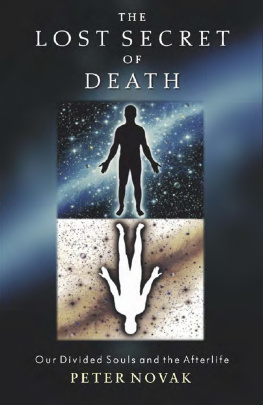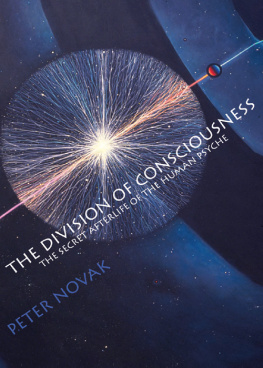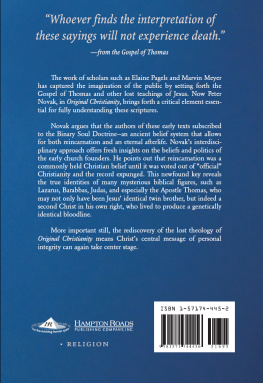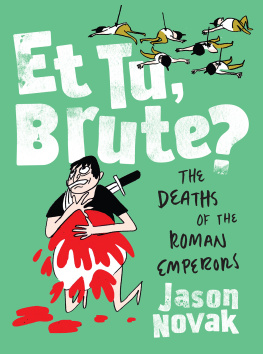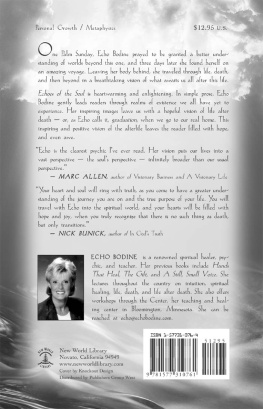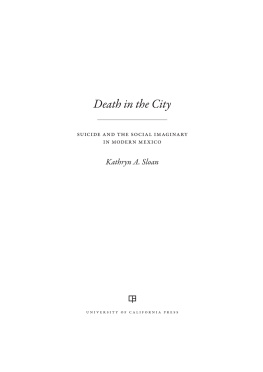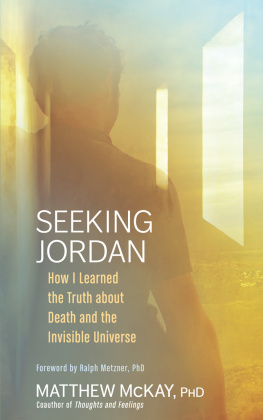Acknowledgments
This book owes its existence to many. First and foremost, my gratitude goes to my wife, Cassie, and my daughter Ayriel for enduring the many sacrifices this book required. I must also thank all the friends and researchers I've met and corresponded with since the publication of The Division of Consciousness, without whose counsel and assistance this new book would never have been possible, especially Robert Friend, Dr. Don Morse, Kevin Williams, Stan and Cynthia Tenen, Ken Eagle Feather, Bill Barnes, Dr. Tamar Frankiel, Robert Bruce, P. M. H. Atwater, Ramona Louise Wheeler, Dr. Bill Lanning, Ian Lawton, Anthony Solbach, William Pustarfi, Dr. Janet Cunningham, F. James Shepherd, Charles Knowlton, Dr. Barbara Rommer, Canon Michael Perry, Kari Marchant, William McNaughton, Dr. Michael York, Michael W. Norman, Eugene Poliakov, Colin Wilson, David King, Michael Enevoldsen, Gary Osborn, Scott Yancey, Dr. Fredric Schiffer, Russell Wright, Isabella Riley, Dr. Bruce Greyson, Paul Bramer, Richard Stevenson, Jeff Duntemann, Tom Ragland, Dr. Ren Turner, and all the members of the DivisionTheory and NDE discussion groups. These folks have been an amazing and priceless resource for me, bringing an endless flow of relevant data to my attention. I also thank all the authors whose names appear in the bibliography; these people are performing the most important work of this generation. And finally, I thank my publisher Frank DeMarco, whose faith in the importance of this research never wavered.
Appendix A
What Was Baptism for the Dead?
Let the dead bury their own dead.
Jesus Christ
As near as we can tell, the earliest form of Christian theology revolved around the idea of salvation of the dead. It was perhaps the major theme. We know that Jesus' post-death descent into the netherworld was thought to have somehow helped to achieve this result. We also know that a widely accepted branch of early Christianity practiced something called baptism for the dead (I Cor. 15:29). And while we no longer know what this baptism for the dead ritual was about, its a safe bet it was related to salvation of the dead.
We know from the Gnostic scriptures discovered in Egypt in the 1940s that some elements of that early Christian church taught its followers to raise their own dead by looking within and knocking on themselves. For example:
Then, if one has knowledge (gnosis], he receives what are his own and draws them to himselfconsumingdeath by life. Raise up those who wish to rise, and awaken those who sleep.
The Gospel of Truth 21:11-15; 25:15-19; 33:6-8
Light the light within you. Do not extinguish it. Raise your dead who have died, for they have lived and died for you. Give them life. They shall live again. Knock upon your-self as upon a door, and walk upon yourself as upon a straight road.
The Teachings of Silvanius 107:14-33
The concepts in these passages, of awakening one's own and consuming death by life by raising up those who sleep, of raising your own dead by lighting the light within you and knocking on yourself suggest a close relationship to early Christian theology's focus on saving the dead. But these obscure passages, as well as the mysterious Biblical passage that labels the salvation of the dead with the intriguing phrase baptism for the dead, seem to assume that Jesus' efforts in the netherworld were not completely sufficient by themselves. Instead, they suggest that, in addition to Jesus' accomplishments, something more is also required by the living before the dead can truly be saved. The living must also successfully accomplish a task, and only then will the dead be completely saved.
What was this task? What was baptism for the dead? Conventional Christianity doesn't know.
As we've seen, there is a great deal about Jesus' model of life and death that Christianity doesn't comprehend. This doesn't prevent us from celebrating His teachings, but it may cause us to unwittingly prostitute them. Jesus' teachings are never celebrated more than they are at funerals, when all His comforting promises about salvation and eternal life are dusted off and run up the flagpole so everyone can salute them, hoping this will help them feel a little better about the death of their loved ones.
But Jesus' purpose was not to merely console us in the face of death, but to conquer death, and to help us do the same thing. The difference between what He thought He was teaching us and what the world decided He was teaching us is illustrated by something He said about life and death that will never be quoted at any funeral: Let the dead bury their own dead. This seemingly insensitive passage is a thorn in the sides of funeral directors, but our collective discomfort and reluctance to embrace this passage should not be taken as a sign to turn away from His words, but to consider them more closely.
Why would Jesus say this? It is as if He was suggesting that the living should not bury their dead, but this meaning has been overlooked for 2,000 years. The passage carries the unsettling implication that those who do bury their dead will then become dead by doing so, and by extension, it also suggests that either the living who do not bury their dead will not die, and/or that the living who exhume their dead will not die.
Which did He mean? Perhaps both, but in any case, I do not believe He was referring to the physical corpses of the dead, but to the dead themselves. As can be seen in the Gnostic passages quoted earlier, a living tradition and practice in early Christianity was based on this goal of exhuming the dead, raising their souls back to life! I am convinced that those Gnostic passages are directly related to His canonical comment about the dead burying their dead, and also to the mysterious practice of baptism for the dead.
Did Jesus teach (as the Gnostics maintained) that it is the duty and obligation of the living to exhume their own dead past-life selves, by looking within, by knocking on oneself and receiving what is one's ownjust as the Gnostic scriptures demand, just as PLR pioneers are doing today?
Perhaps He did. Was this the ancient Christian practice called baptism for the dead? Perhaps it was. What do we know about that practice? Not much, but we can be sure what it wasn't. They might have tried to raise their past-life selves via some sort of PLR, and baptize them while those past-life selves were momentarily conscious again. However, such a practice would most assuredly not be baptism for the dead, but rather baptism of the dead. But that's just semantics.
At any rate, such a process would not work, because if the past-life self was allowed to rise up to full consciousness, again becoming the same person it had been in previous life, that reawakened self would be no more inclined to get baptized now than he had been when he was originally alive.
No, it would seem that the Biblical phrase points in the right direction. The current incarnation, the self alive today, would have to also be conscious, standing in as a substitute or representative for the dead person so he could use his own will to speak for, and make choices for, that past-life self. In order to baptize a past-life self, today's present self would have to commune together with that past-life self, the two joining consciously together in the same mind enough to communicate and interact with one another, thus allowing the baptism of the present self, the choices of the present lifetime, to flow directly into the past-life self.
Thus, it seems that the Gnostic Christians believed that if the living had received baptism, they could transfer it to all their other past-life selves as well, saving their whole beings from one end of history to the other:
The dead shall arise!The thought of those who are saved shall not perish. Does not that which is yours exist with you? Yet while you ate in this world, what is it that you lack? This is what you have been making every effort to learn. Nothing saves us from this world. But the all which we arewe are saved. We have received salvation from end to end. Let us think in this way! Let us comprehend in this way!
Next page
